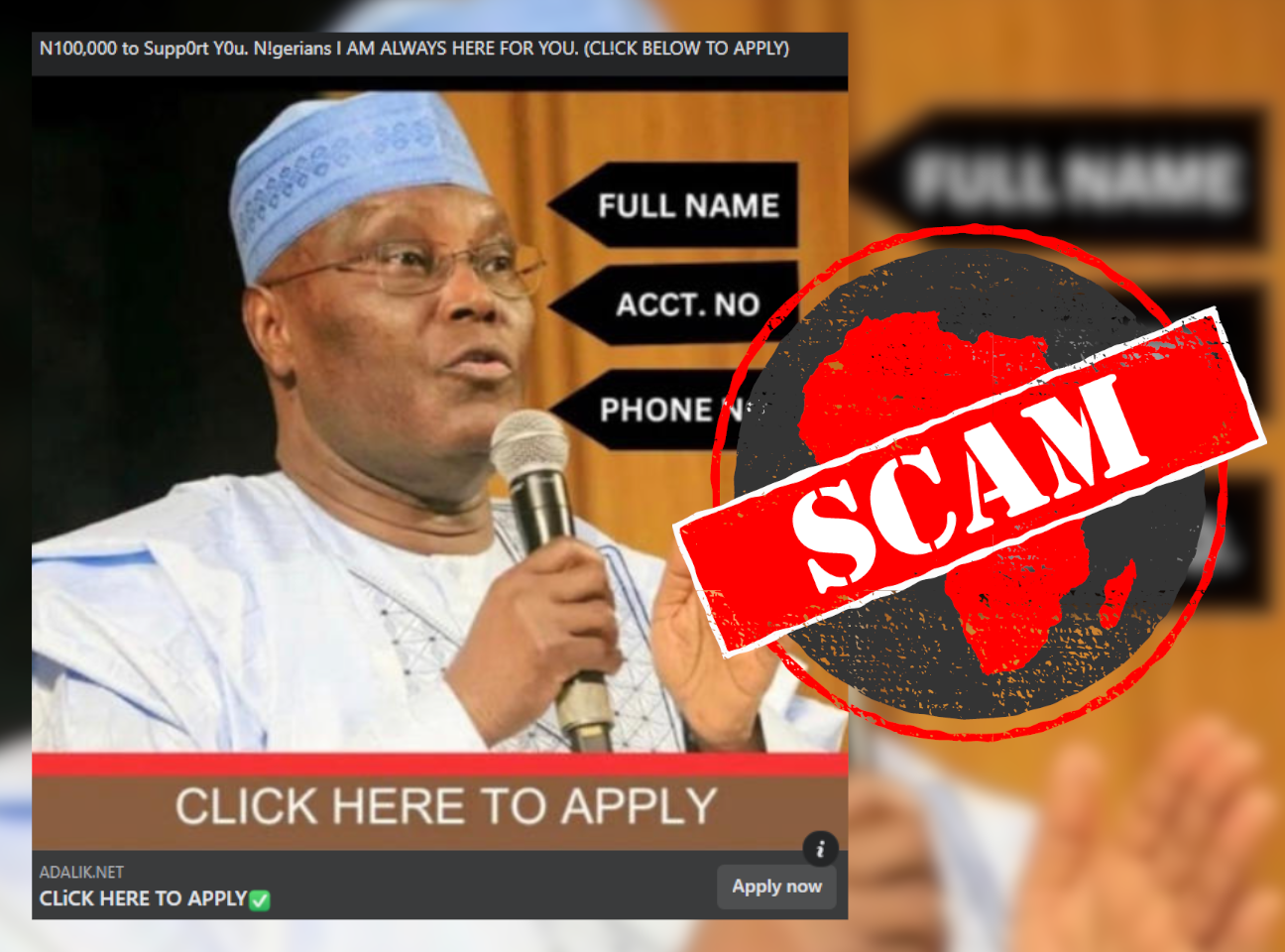IN SHORT: Several posts on Facebook claim the former vice president of Nigeria Atiku Abubakar is giving out 100,000 naira in cash to Nigerians. We checked and this is false.
A Facebook post claims that Atiku Abubakar is giving away N100,000 (about US$66) to Nigerians.
The post reads: “N100,000 to Support you. Nigerians, I AM ALWAYS HERE FOR YOU. (CLICK BELOW TO APPLY).”
Abubakar of the Peoples Democratic Party came second in Nigeria's presidential election in February 2023. He also served as the country's vice president from 1999 to 2007.
The post features a graphic with Abubakar’s photo and a link to the supposed registration page for the giveaway.
The same ad has been republished on Facebook here and here.
But is Abubakar handing out N100,000 to Nigerians, and is he doing so through the link provided? We checked.

Beware of malicious link
Clicking on the link attached to the post took us to a blog that posts updates on visa sponsorship opportunities in the United States.
This is a classic example of engagement bait. These are usually social media posts that ask people to interact by liking, commenting or sharing. This increases the post’s reach but ultimately offers no reward, and certainly no opportunities of any kind in the US.
The post is also poorly written with misspelt words, which is often a red flag. If the post was published by Abubakar or any member of his team, we would expect it to be error-free.
We checked Abubakar’s official X (formerly Twitter) handle and found no mention of the N100,000 cash giveaway to Nigerians.
No credible media source reported such a giveaway, which further raised our suspicions. This is a scam.
You can read our guide to spotting scams on Facebook here.
Republish our content for free
For publishers: what to do if your post is rated false
A fact-checker has rated your Facebook or Instagram post as “false”, “altered”, “partly false” or “missing context”. This could have serious consequences. What do you do?
Click on our guide for the steps you should follow.
Publishers guideAfrica Check teams up with Facebook
Africa Check is a partner in Meta's third-party fact-checking programme to help stop the spread of false information on social media.
The content we rate as “false” will be downgraded on Facebook and Instagram. This means fewer people will see it.
You can also help identify false information on Facebook. This guide explains how.




Add new comment